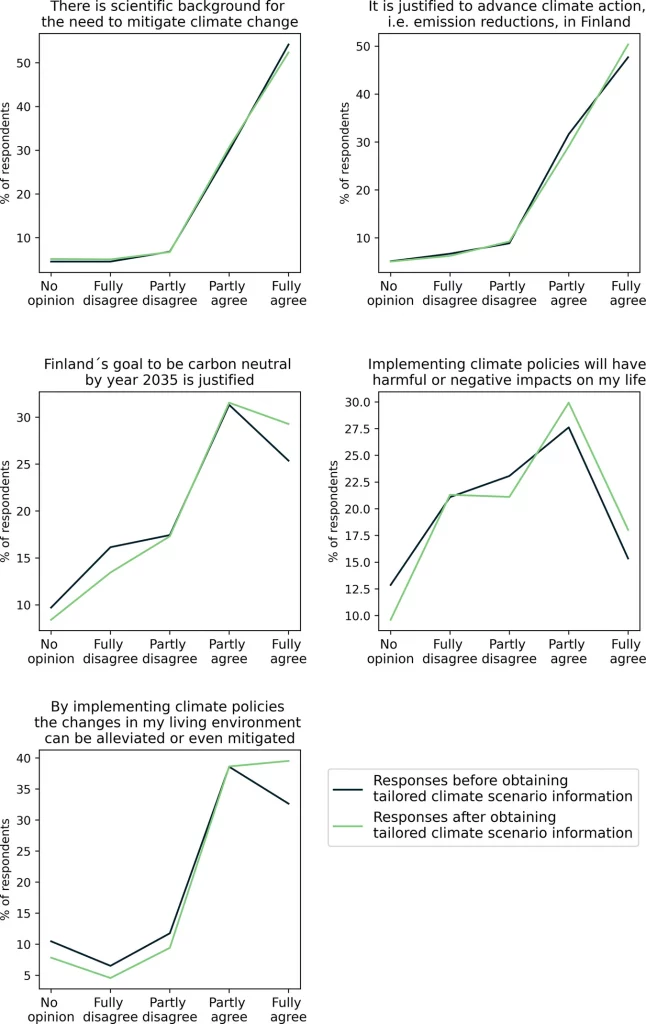Impact of tailored climate information on attitudes towards climate policies and perceived distance to climate change
A new study by Mira Hulkkonen, Tero Mielonen, Saara Leppänen, Anton Laakso and Harri Kokkola, involving over 1,000 Finns used an innovative interactive tool to assess the impact of tailored climate information on knowledge, attitudes, and psychological detachment from climate change. The tool provided participants with localized climate projections for their specific area by 2040, depending on emission trends. It factored in personal details such as location, age, health, and income, offering a concrete and personalized view of potential climate impacts. The interactive tool aimed to make climate change more immediate and relevant by presenting information on a very localized scale, with accuracy down to twenty kilometers.
This approach sought to reduce the psychological distance people feel toward climate change—a distance that often diminishes their sense of urgency and willingness to support climate action.
The study found that tailored information significantly increased participants’ awareness of local climate impacts and their confidence in the effectiveness of climate action. However, its impact on attitudes varied. Vulnerable groups, such as the elderly or those with lower incomes, perceived climate change as more urgent after using the tool. Conversely, low-vulnerability groups, such as the young and healthy, saw climate change as more distant, even with personalized data.
These findings suggest that while the interactive tool successfully enhanced knowledge and personalized the climate message, its influence on attitudes is complex and varied. The study highlights the need for different communication strategies depending on the audience’s vulnerability. Tailored, localized information can effectively engage vulnerable groups, while broader, global messaging might be necessary to reach those who feel less directly affected by climate change.

How tailored climate information affects attitudes towards climate policy and psychological distance of climate change.
Mira Hulkkonen, Tero Mielonen, Saara Leppänen, Anton Laakso and Harri Kokkola
npj Clim. Action 3, 54 (2024) https://doi.org/10.1038/s44168-024-00136-y
